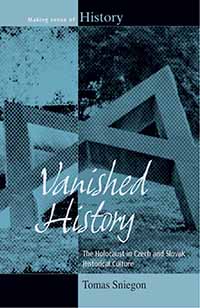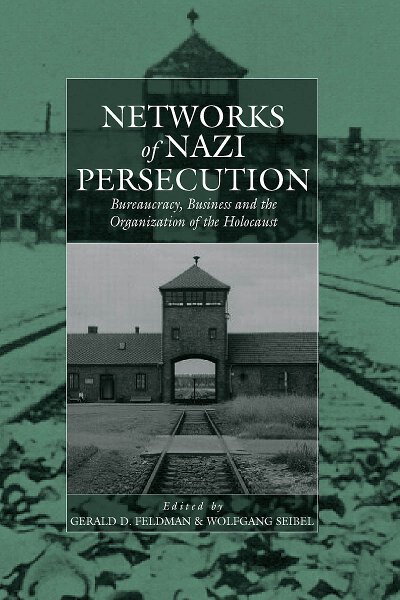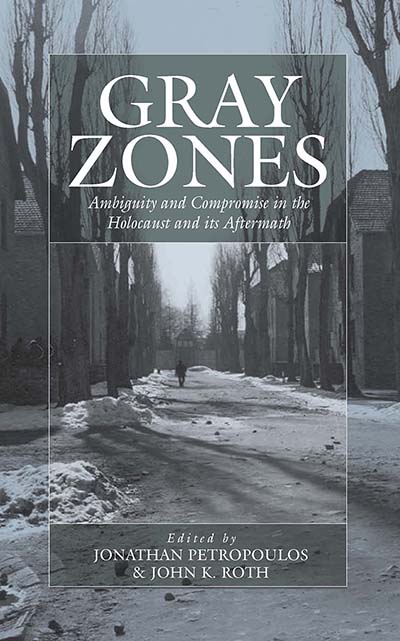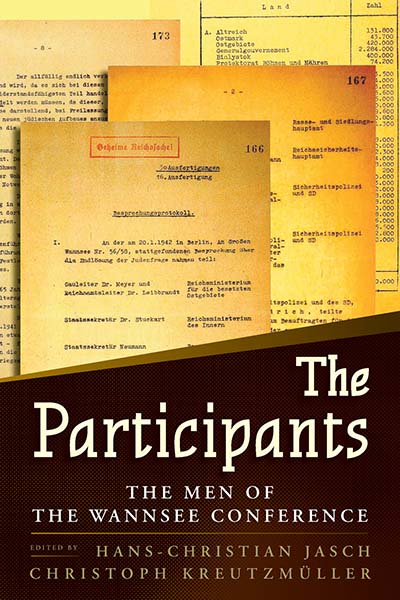
Series
Volume 18
Making Sense of History
Email Newsletters
Sign up for our email newsletters to get customized updates on new Berghahn publications.
Vanished History
The Holocaust in Czech and Slovak Historical Culture
Tomas Sniegon
248 pages, 14 illus., bibliog., index
ISBN 978-1-78238-294-2 $135.00/£104.00 / Hb / Published (May 2014)
ISBN 978-1-78533-507-5 $29.95/£23.95 / Pb / Published (July 2017)
eISBN 978-1-78238-295-9 eBook
Reviews
“Overall, this is an informative book [that]… may be especially useful for readers interested in the ongoing development of historical narratives in Europe generally, and in the Czech and Slovak Republics in particular.” · Holocaust and Genocide
“Vanished History represents a major contribution to the field of collective memory and Holocaust studies in the Czech and Slovak republics [and] offers a thoughtful analysis of the Holocaust’s position in Czech and Slovak historical culture during ‘the long 1990s’.” · Judaica Bohemiae
“The end result is a fascinating journey into the Czech and Slovak historical narratives of the 1990s…[an]important and original contribution to the growing field of Czech and Slovak Holocaust studies.” · Canadian Slavonic Papers: Revue Canadienne des Slavistes
“Tomas Sniegon’s book makes an important contribution to the field. Its well-researched and persuasively argued empirical chapters offer a nuanced analysis of the Czech and Slovak historical narratives and also accommodate them in relation to Pan-European perspectives.” · American Historical Review
“This is an important study, which should be read by anyone interested in Jewish, Czech, Slovak, and Czechoslovak history, and in issues of collective memory, historical consciousness, comparative cultures, dominant narratives, and the intensity of historical experience.” · Austrian History Yearbook
“This book opens up important issues not dealt with extensively in the historiography so far. Unlike with some other post-Communist countries, and Poland in particular, there hasn't been that much interest in the topic of commemoration and historicisation of the Holocaust in post-Communist Czechoslovakia…The author should be praised for the critical distance with which he approaches the historical cultures in both parts of former Czechoslovakia and its actors.” · Michal Frankl, Jewish Museum in Prague
Description
Bohemia and Moravia, today part of the Czech Republic, was the first territory with a majority of non-German speakers occupied by Hitler’s Third Reich on the eve of the World War II. Tens of thousands of Jewish inhabitants in the so called Protectorate of Bohemia and Moravia soon felt the tragic consequences of Nazi racial politics. Not all Czechs, however, remained passive bystanders during the genocide. After the destruction of Czechoslovakia in 1938-39, Slovakia became a formally independent but fully subordinate satellite of Germany. Despite the fact it was not occupied until 1944, Slovakia paid Germany to deport its own Jewish citizens to extermination camps.
About 270,000 out of the 360,000 Czech and Slovak casualties of World War II were victims of the Holocaust. Despite these statistics, the Holocaust vanished almost entirely from post-war Czechoslovak, and later Czech and Slovak, historical cultures. The communist dictatorship carried the main responsibility for this disappearance, yet the situation has not changed much since the fall of the communist regime. The main questions of this study are how and why the Holocaust was excluded from the Czech and Slovak history.
Tomas Sniegon is a historian and Senior Lecturer in European Studies at the University of Lund, Sweden. His research focuses on Holocaust memory in various historical cultures and on the development of the Soviet forms of Communism in Europe during the Cold War.




